Jewish History
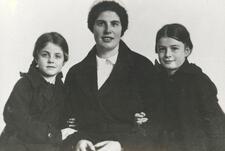
Clara Asscher Pinkhof
Clara Asscher Pinkhof dedicated her life and work to helping and advocating for Jewish children, initially as a teacher and later as an author. She is most known for her accounts of the experiences of Jewish children during the Nazi occupation.
Nora Platiel
The Russian Revolution of 1917 made a convinced socialist of Nora Block and inspired her to study law. After leaving Nazi Germany for France and then Platiel, Platiel returned home, eventually becoming the first woman director of a German district court and being elected for three terms in the Hessian State Parliament.
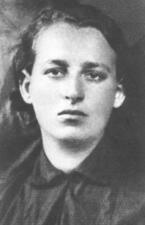
Frumka Plotniczki
Whether in her family, the kibbutz training program or the movement, what set Plotniczki apart was her ability to combine penetrating, uncompromising analysis with a loving heart and maternal compassion.
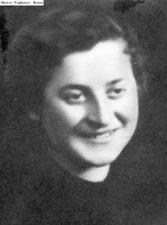
Hantze Plotniczki
Hantze Plotniczki was an active leader of and participant in resistance movements during World War II. She had a gift for connecting with people and inspiring love and action from other members of the movement.
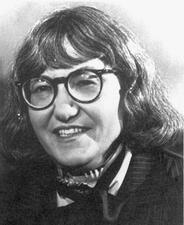
Poetry in the United States
Anna Sophia Polak
Anna Polak was an important figure in the Dutch women’s movement in the early twentieth-century, who served as director of the National Bureau of Women’s Labor in The Hague for 28 years. Her controversial views on the importance of involving women in the working world led to her international recognition; she was beloved and admired by many.
Poland: Early Modern (1500-1795)
Polish Jewish Women played a complex role in their society and culture during the early Modern Period. This role was usually gender segregated, but upon a closer look, was more gender flexible than one might think.
Poland: Interwar
A minority habitually ignored by scholars, Polish-Jewish women played important roles in the changing cultural and political framework of the interwar years.
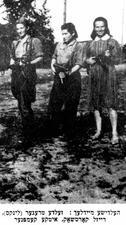
Poland: Women Leaders in the Jewish Underground During the Holocaust
There were prominent female leaders in nearly every Jewish underground in the Polish ghettos during WWII. Women often took on the role of delegate to central leadership, moving between ghettos. Jewish fighting organizations relied on these delegates to deliver arms, forged documents, and military instructions between ghettos.
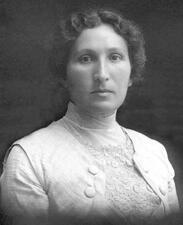
Political Parties in the Yishuv and Israel
Women’s political parties have played an important, though to date poorly acknowledged, role in the social and political history of Israel. They had a significant impact on women’s participation in power center, political and other; they placed a major part in the struggle for women’s right to vote and to be elected; they raised the issue of violence against women, and much more.
Politics in the Yishuv and Israel
Virginia Morris Pollak
During World War II, sculptor Virginia Morris Pollak used her deep understanding of clay, plaster, and metal to revolutionize reconstructive surgery for wounded servicemen. This earned her a presidential citation, and she was later appointed to JFK’s Commission for the Employment of the Handicapped. Pollak also co-founded her own sculpture studio and chaired the Norfolk Fine Arts Commission, beautifying her hometown with an outdoor sculpture museum at the Botanic Garden.
Tamar De Sola Pool
Born into a family deeply involved in Jewish activism and scholarship, Tamar De Sola Pool spent over a decade as both a Hadassah chapter president and later Hadassah’s national president. She wrote two books in collaboration with her husband, volunteered at displaced persons camps in Cyprus, and helped resettle Jewish children in Palestine with Hadassah.
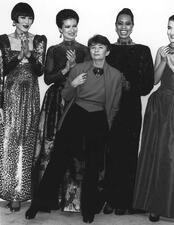
Lucie Porges
Lucie Porges brought a combination of elegance and a relaxed sensibility to her long and fruitful collaboration with top fashion designer Pauline Trigère. As she continued to design, Porges also imparted her immense knowledge in the Fashion Department of the New School for Social Research.
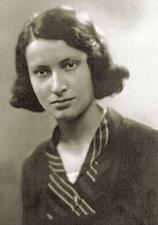
Zosha Posnanska
A left-wing political activist and Soviet intelligence recruit, Zosha Posnanska was a fearless fighter against the Nazis and for a peaceful world.
Post-Biblical and Rabbinic Women
IIn antiquity, the treatment of women drew from patriarchal biblical traditions. Despite a few notable exceptions, women had minimal legal rights but were active participants in alternative Jewish sects and could hold office. As rabbinic material was codified, control over women increased, although the literature was not exclusively restrictive towards women.
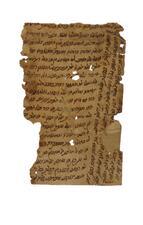
Poverty: Jewish Women in Medieval Egypt
The documents recovered from the Cairo Genizah give insight into the lives of Jewish women in poverty in medieval Egypt. Without husbands, women were often left without any means of earning a living, though the Jewish community assumed responsibility for providing for widows.
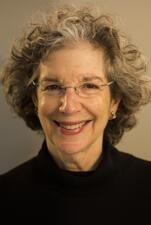
Riv-Ellen Prell
Anthropologist Riv-Ellen Prell initiated ethnographic study of ordinary American Jews that paid attention to religion, gender, ritual, and cultural performance. Her work addresses the primacy of gender in twentieth-century Jewish life and looks at economic and power relations often expressed through negative stereotypes of Jewish women.
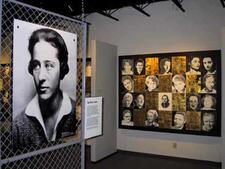
Olga Benário Prestes
A Communist activist before and during World War II, Olga Benário Prestes’ political activities led her to the highest ranks of the Communist Youth International. Her relationship with Brazilian Communist leader Luis Carlos Prestes, who was part of a failed coup, led to her deportation to Germany, where she was gassed at Bernburg in 1942. Although her name is not well known in the United States, Olga is famous in Brazil and was considered a great heroine in the German Democratic Republic.
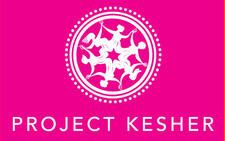
Project Kesher
Project Kesher is a feminist Jewish organization empowering women in Belarus, Russia, Ukraine, and the Russian-speaking community in Israel to build a society in which inclusive Jewish life can flourish, and where women are the instruments of peaceful change.
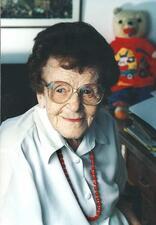
Prose Writing in the Yishuv: 1882-1948
Female Yishuv writers have often been ignored in discussions of Jewish literature from the period. As the sometimes-melancholy tone and escapist themes of their writing show, these women struggled to escape the margins in pre-state Palestine. Nonetheless, the works of these female writers offer important insights into the lives of Yishuv women and paved the way for contemporary women writers.
Erna Proskauer
Erna Proskauer dreamed of becoming a judge in Germany but lost her job in 1933 and emigrated first to France and then to Palestine. After returning to Germany, Erna faced several setbacks in her quest to return to her career as a lawyer but ultimately opened her own firm. At the age of sixty-five, she took over her former husband’s law office and continued working for another twenty years.
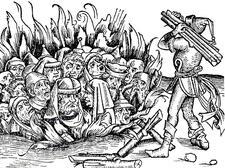
Pulcellina of Blois
Pulcellina was a prominent and powerful Jewish moneylender in twelfth-century Blois. In 1171, she was burned at the stake with mother than 30 other Jews on the false accusation of murdering a Christian boy.
Flora Sophia Clementina Randegger -Friedenberg
Born in Italy in 1825, Flora Sophia Clementina Randegger-Friedenberg was a persistent educator and writer. She is best known for the publication of her Jerusalem journal, which shared her extraordinary experiences in a way that combined messianic hope and the enlightenment ideals of knowledge and progress.
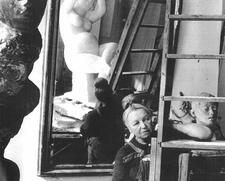
Antonietta Raphaël
Painting and sculptor Antonietta Raphaël rose to fame in the 1950s. Her paintings were seen for the first time in Rome in 1929; during World War II, she took up sculpting, and in the 1950s, she rose to prominence and exhibited her works worldwide.


